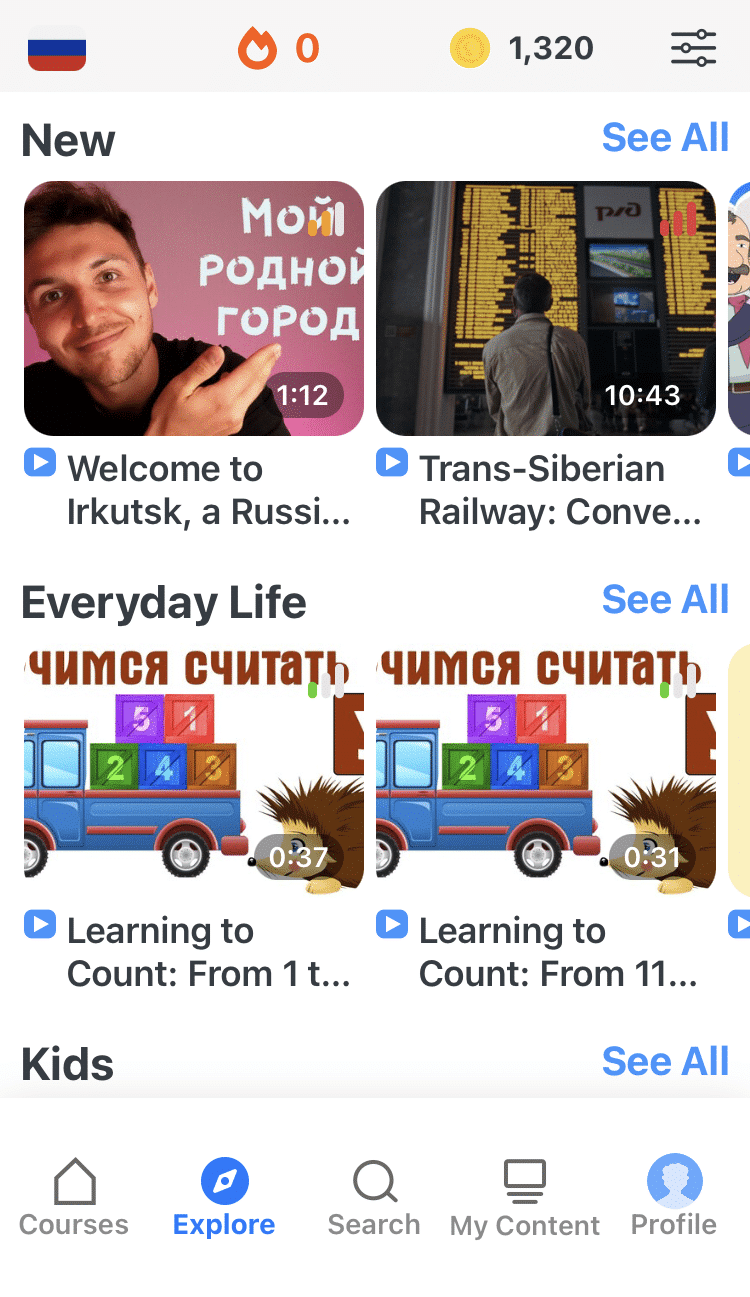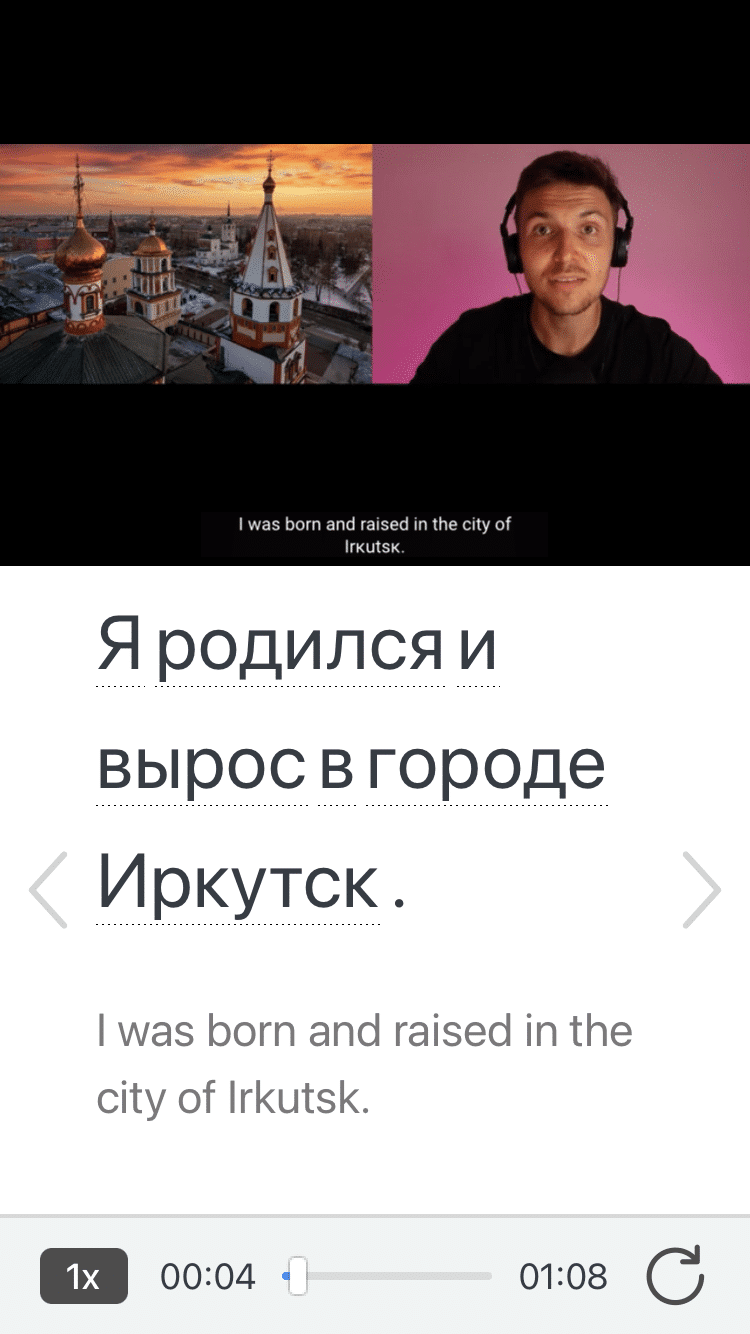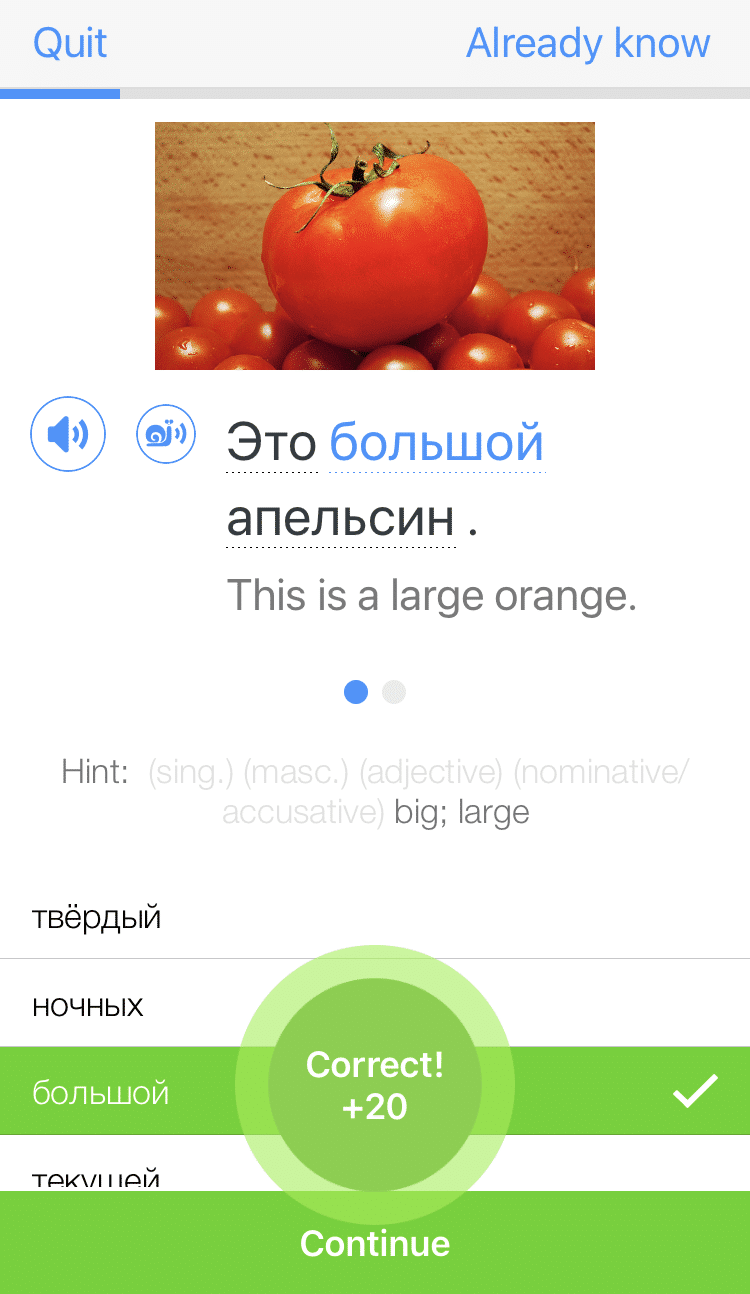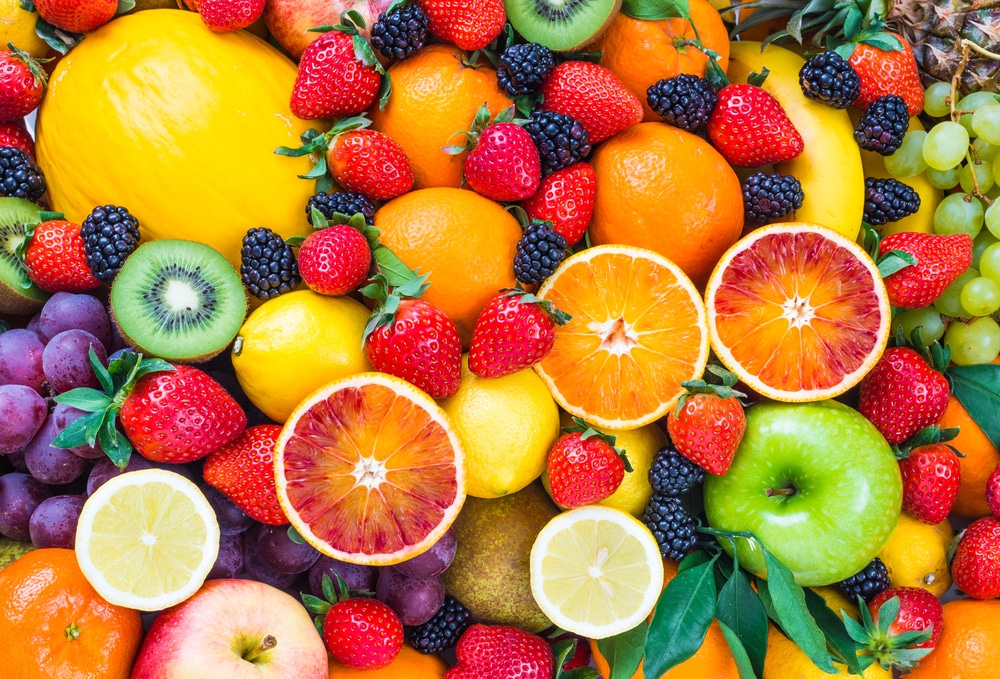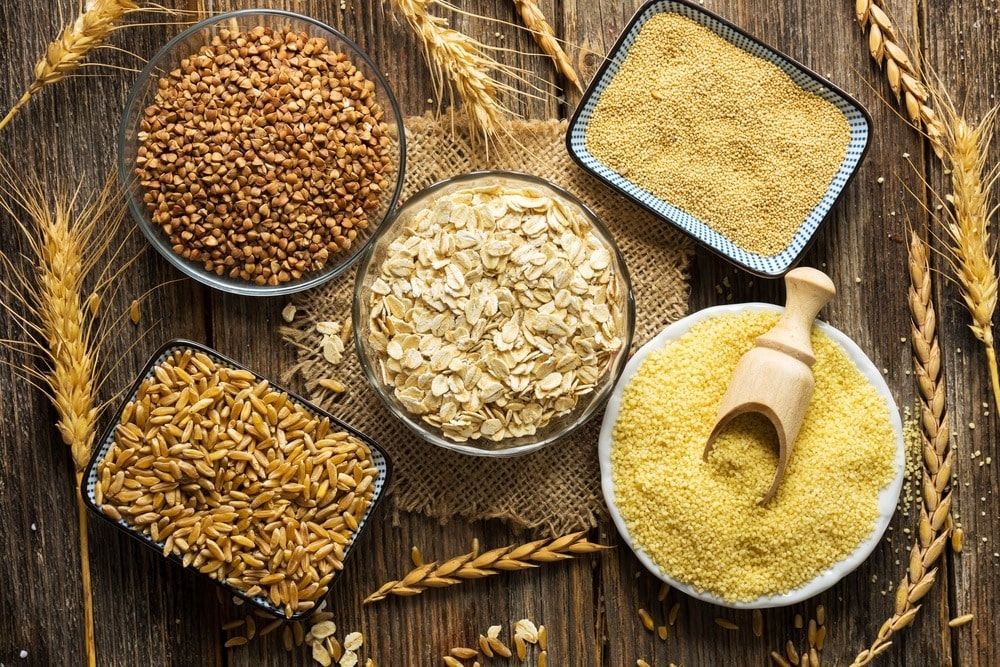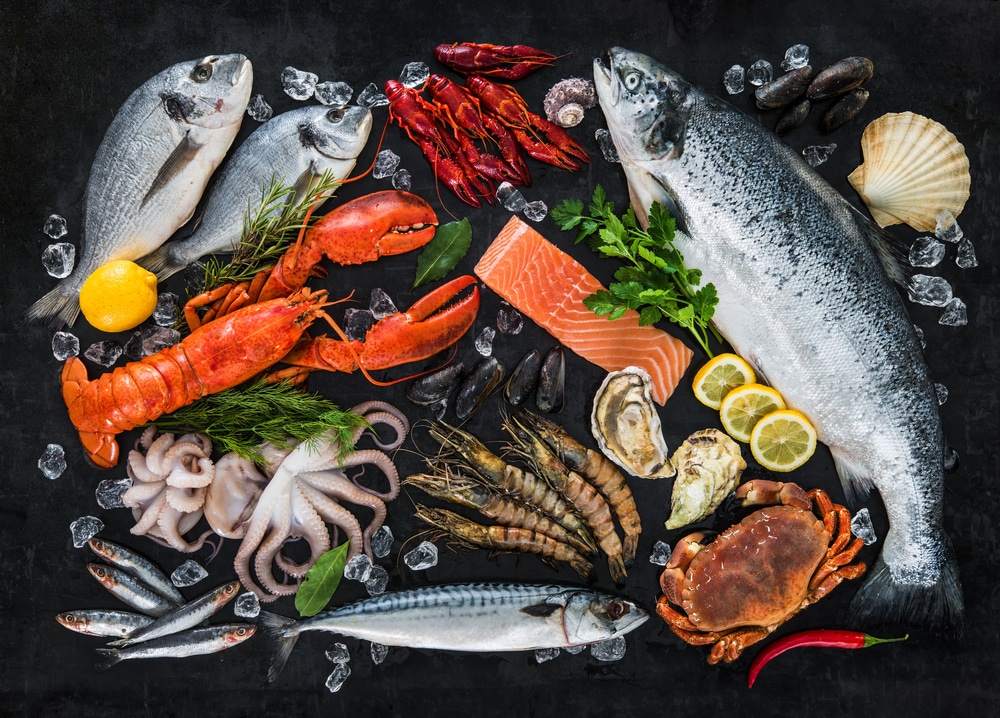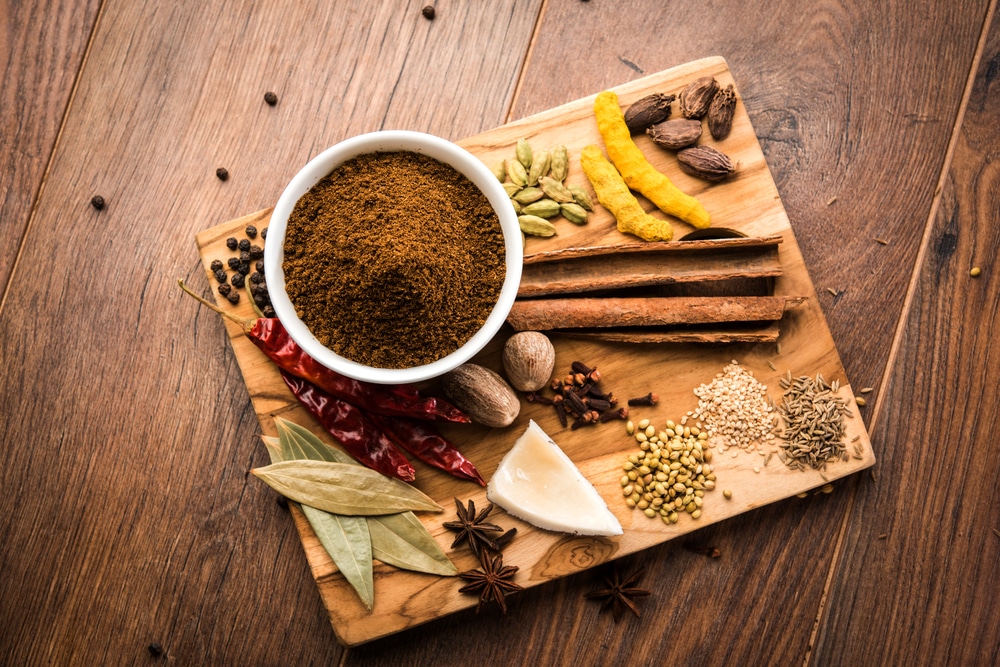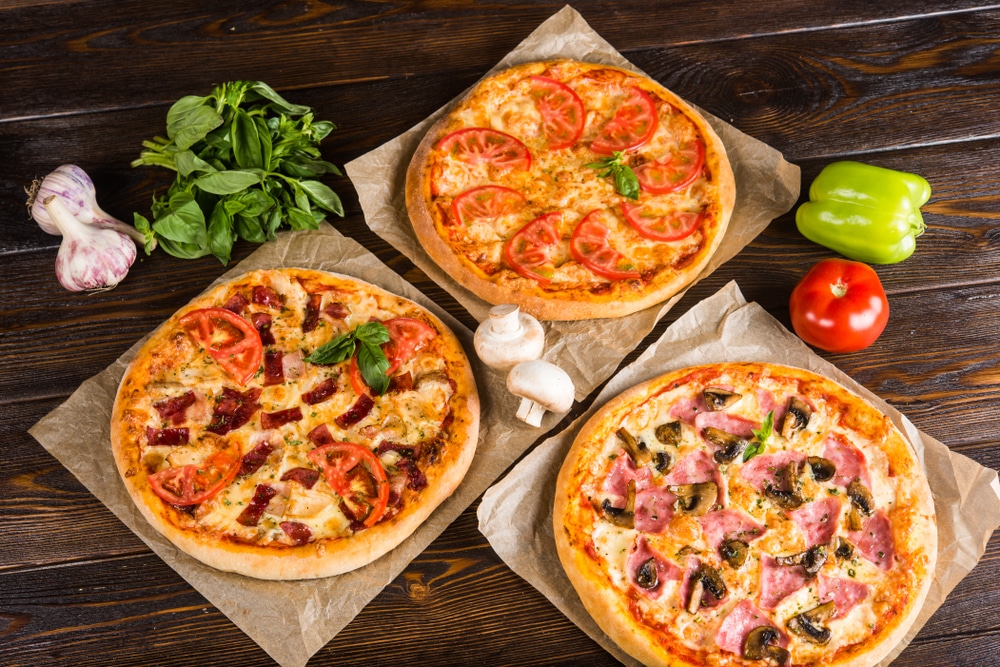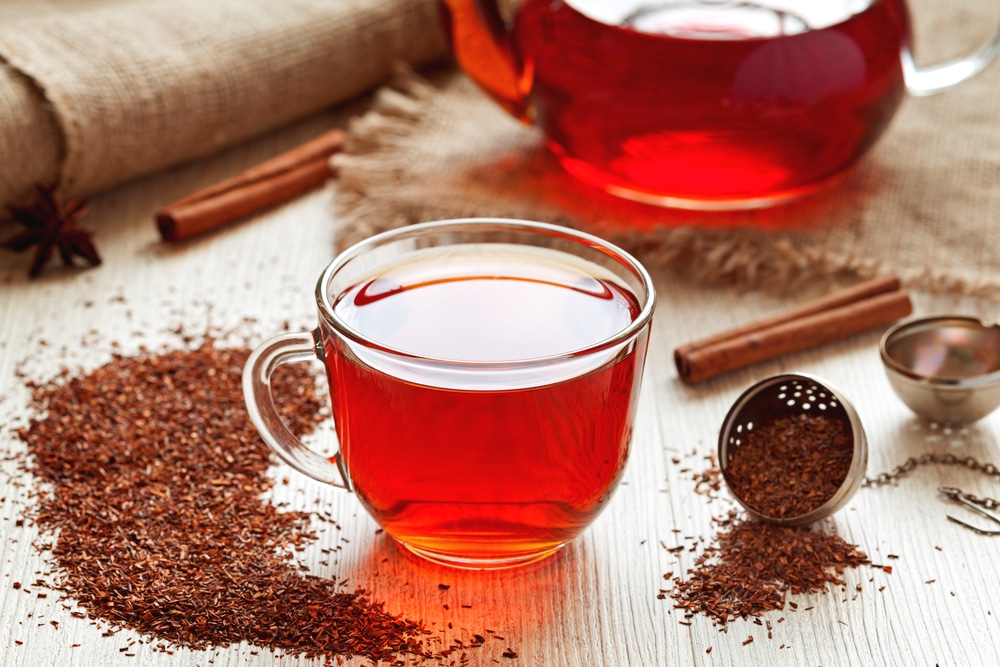
Russian Food Vocabulary: 120 Russian Words
If you’re trying to teach yourself Russian, it should come as no surprise that Russian food vocabulary is some of the most important vocabulary you could hope to learn.
In this post, you will find the 120 common Russian food vocabulary words with audio pronunciation along with useful tips to help you practice new vocabulary.
Contents
- Фрукты и Овощи — Fruits & Vegetables
- Крупы — Grains
- Молочные продукты и яйца — Dairy & Eggs
- Мясо — Meat
- Морепродукты — Seafood
- Десерты — Desserts
- Орехи — Nuts
- Специи и травы — Spices and Herbs
- Общие блюда — Common Dishes
- Напитки — Beverages
- How to Practice Russian Food Vocabulary
- And One More Thing...
Download: This blog post is available as a convenient and portable PDF that you can take anywhere. Click here to get a copy. (Download)
Фрукты и Овощи — Fruits & Vegetables
1. Яблоко — apple
2. Апельсин — orange
3. Банан — banana
4. Виноград — grape(s)
Виноград is a trickster. It’s used to refer to a singular grape or multiple grapes, sort of like the English word “deer.” You can also use виноградина if you want to clarify that you’re just talking about one grape. If you want to make it super clear you’re talking about a bunch of grapes, you can use гроздь винограда .
5. Груша — pear
6. Клубника — strawberry
7. Малина — raspberry
Вишня and черешня are two different types of cherry. Вишня refers to a sour or tart cherry. Черешня refers to a sweet cherry. You’re much more likely to encounter черешня, so this is the more important word to remember.
9. Грейпфрут — grapefruit
10. Киви — kiwi fruit
11. Мандарин — mandarine
12. Манго — mango
13. Ананас — pineapple
14. Персик — peach
15. Абрикос — apricot
16. Слива — plum
17. Дыня — melon
18. Арбуз — watermelon
19. Картошка / Картофель — potato(es)
Potatoes are a big deal in Russia, so it should come as no surprise that they go by a variety of names. Two common words are картошка and картофель, both of which can be used to refer to just one potato or multiple potatoes. No need to pluralize here!
20. Помидор — tomato
21. Лук — onion
22. Чеснок — garlic
23. Перец — pepper
24. Капуста — cabbage
25. Морковь — carrot
26. Брокколи — broccoli
27. Цветная капуста — cauliflower
Note that the phrase for “cauliflower” builds off the word капуста, which means cabbage, a close relative of the cauliflower. In fact, цветная капуста literally means “colored cabbage.”
28. Огурец — cucumber
29. Баклажан — eggplant
30. Свекла — beet
31. Салат — lettuce
If you like your greens, салат is a super useful word in relation to vegetables in Russian. It can mean “lettuce” or “salad.”
32. Гриб — mushroom
33. Кабачок — zucchini
34. Тыква — pumpkin
35. Сельдерей — celery
Крупы — Grains
36. Мука — flour
37. Хлеб — bread
38. Рис — rice
39. Каша — porridge
While kasha might not be as well-known in the English-speaking world, it’s very popular in Eastern Europe. In the United States, the word usually refers to buckwheat. However, in Russia, it can refer to a variety of different grain-based porridges that may be savory or sweet.
40. Овес — oats
41. Гречка — buckwheat
42. Ячмень — barley
Молочные продукты и яйца — Dairy & Eggs
43. Сыр — cheese
44. Масло — butter
45. Сметана — Sour cream
46. Молоко — milk
47. Творог — cottage cheese
48. Кефир — kefir
49. Йогурт — yogurt
50. Яйцо — egg
51. Мороженое — ice cream
Мясо — Meat
52. Говядина — beef
53. Курица — chicken
54. Свинина — pork
55. Баранина — mutton
56. Телятина — veal
57. Ягнятина — lamb
58. Ветчина — ham
59. Бекон — bacon
60. Колбаса — sausage
Морепродукты — Seafood
61. Рыба — fish
62. Краб — crab
63. Креветка — shrimp
64. Икра — caviar
65. Кальмар — squid
66. Мидия — mussel
67. Устрица — oyster
68. Сельдь — herring
69. Тунец — tuna
70. Скумбрия — mackerel
71. Форель — trout
Десерты — Desserts
72. Кекс — cake
73. Торт — pie/tart
74. Конфета — candy
Конфета can refer to all sorts of different candy. Want to get more specific? Chocolate fans can ask for шоколад.
75. Булочка — bun
76. Пирожок – pie, patty
77. Варенье — jam
78. Батончик — candy bar
79. Печенье — cookie
Орехи — Nuts
80. Арахис — peanut
81. Грецкий орех — walnut
82. Лесной орех — hazelnut
83. Миндаль — almond
84. Фисташки — pistachio
85. Кешью — cashew
86. Мускатный орех — nutmeg
Специи и травы — Spices and Herbs
87. Соль — salt
88. Сахар — sugar
89. Черный перец — black pepper
You’ll notice this reuses a word that appeared earlier in the list, перец. However, in this context, it refers to the common seasoning rather than the vegetable.
90. Имбирь — ginger
91. Кардамон — cardamom
92. Розмарин — rosemary
93. Горчица — mustard
94. Корица — cinnamon
95. Укроп — dill
96. Петрушка — parsley
97. Базилик — basil
98. Мята — mint
99. Тимьян — thyme
100. Кинза — cilantro
101. Кориандр — coriander
102. Щавель — sorrel
103. Чабрец — chives
Общие блюда — Common Dishes
104. Блин — pancake
Блин is the Russian word for “pancake.” However, pancakes in Russia are usually distinctly different from American pancakes. They’re thin and may be eaten with either sweet or savory fillings, sort of like a crepe. The plural, блины, is also widely used and may sound more familiar to native English speakers, since this term is often used in the United States, too.
105. Пицца — pizza
106. Сэндвич / Сандвич / Бутерброд — sandwich
Сэндвич and сандвич are both used, though сэндвич is more common. You might also see бутерброд, though this usually refers to an open-faced sandwich.
107. Гамбургер — hamburger
108. Суп — soup
There are a lot of popular soups in Russia. You may encounter щи (“shchi,” a cabbage-based soup), борщ (“borscht,” a beetroot soup) and countless other variations on the beloved dish.
Напитки — Beverages
109. Вода — water
110. Молоко — milk
111. Кофе — coffee
112. Чай — tea
113. Сок — juice
114. Лимонад – lemonade
115. Какао – hot chocolate
116. Вино — wine
117. Пиво — beer
118. Водка — vodka
119. Коньяк – cognac
120. Шампанское – champagne
How to Practice Russian Food Vocabulary
Read restaurant menus
Reading restaurant menus is one of the most fun ways to improve your Russian. You can casually peruse the menus of restaurants in cities you hope to one day visit. You can read the food descriptions, consider what you might like to eat and even imagine how it might taste. But reading restaurant menus is more than just fun: It’s also a great way to learn useful Russian phrases, like those used to describe food.
A simple Google search can help you find restaurant menus in pretty much any major Russian-speaking city. You can even search in English and find some amazing-looking restaurants with websites in Russian.
For instance, if you want to fantasize about eating out in Moscow, you might look at the menu for Ресторан Обломов (Restaurant Oblomov). For beginners, it’s a strong choice, because the menu is also available in English. You can have the English and Russian versions of the menu open in separate browser tabs to switch seamlessly between the two if you need to cross-reference word meanings.
Северяне (Northerners) is another Moscow-based restaurant with an online menu you may want to browse. It also offers a PDF menu in Russian. Северяне offers a broader but less descriptive menu than Ресторан Обломов, so is great for learning basic food vocabulary.
Read food magazines
Russian food magazines can help reinforce the food vocabulary you’ve already learned and even teach you some new terms you never knew you needed.
Российский продовольственный рынок (Russian Food Market) is a great online magazine for Russian learners. Articles are available in both English and Russian (the English versions still show Russian-language graphics, but the text itself is in English). The vocabulary used is more advanced, but since this food magazine focuses largely on the food industry in Russia, you’ll get some valuable insight into food trends and how they affect the overall market.
Read Russian recipes
Reading recipes in Russian is a quick, easy way to reinforce your Russian food vocabulary. While there tend to be fewer complete sentences in recipes, you’ll find plenty of ingredient lists you can peruse whenever you have just a couple minutes.
Еда (Food) is a Russian website with lots of great recipes. You can even filter by the type of dish. Recipes frequently feature a video, a brief description of the dish, a recipe list and preparation instructions. For instance, the recipe for тонкие блины на молоке (thin pancakes on milk) can help you practice some basic food words and teach you to make a crepe-like treat.
Watch Russian cooking videos
If you’re a visual learner, you don’t have to stick to just reading. Look up cooking vlogs and recipe videos for a dynamic way to learn food vocabulary. You can find plenty of food-related videos on FluentU, for instance, a language learning program that uses Russian media clips to teach the language.
FluentU takes authentic videos—like music videos, movie trailers, news and inspiring talks—and turns them into personalized language learning lessons. You can try FluentU for free for 2 weeks. Check out the website or download the iOS app or Android app. P.S. Click here to take advantage of our current sale! (Expires at the end of this month.)
Don’t succumb to hanger.
Study these 120 Russian food vocabulary words and satisfy your appetite for learning.
Download: This blog post is available as a convenient and portable PDF that you can take anywhere. Click here to get a copy. (Download)
If you love learning Russian and want to immerse yourself with authentic materials from Russia, then I should also tell you more about FluentU.
FluentU naturally and gradually eases you into learning the Russian language and culture. You'll learn real Russian as it's spoken by real Russian people!
FluentU has a very broad range of contemporary videos. Just a quick look will give you an idea of the variety of Russian-language content available on FluentU:
FluentU makes these native Russian videos approachable through interactive transcripts. Tap on any word to look it up instantly.
Access a complete interactive transcript of every video under the Dialogue tab. Easily review words and phrases with audio under Vocab.
All definitions have multiple examples, and they're written for Russian learners like you. Tap to add words you'd like to review to a vocab list.
And FluentU has a learn mode which turns every video into a language learning lesson. You can always swipe left or right to see more examples.
The best part? FluentU keeps track of your vocabulary, and gives you extra practice with difficult words. It'll even remind you when it’s time to review what you’ve learned. You'll have a 100% personalized experience.
Start using the FluentU website on your computer or tablet or, better yet, download the FluentU app from the iTunes or Google Play store. Click here to take advantage of our current sale! (Expires at the end of this month.)
And One More Thing...
